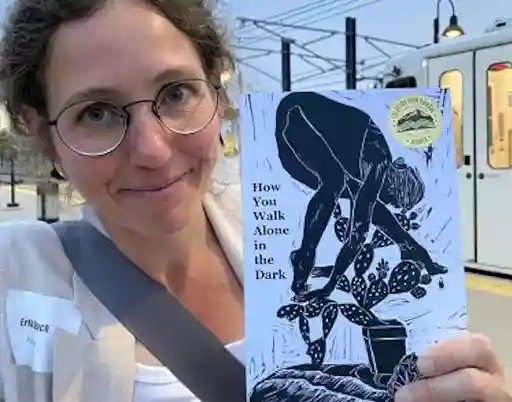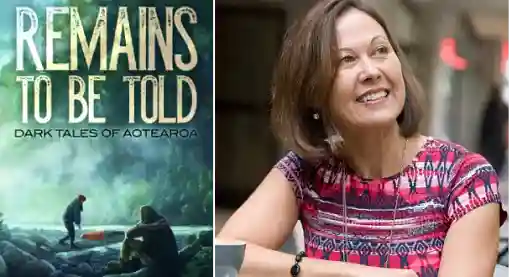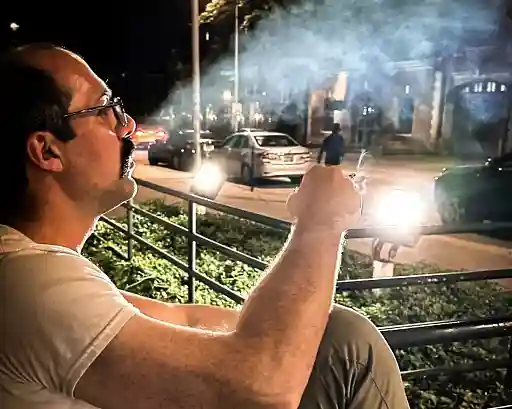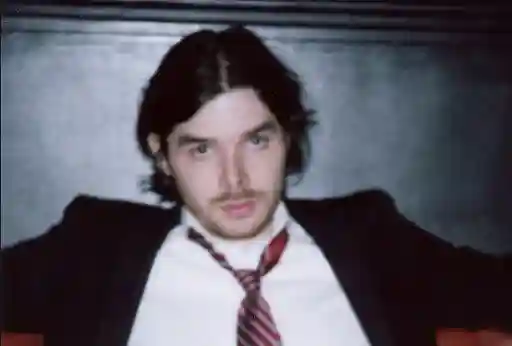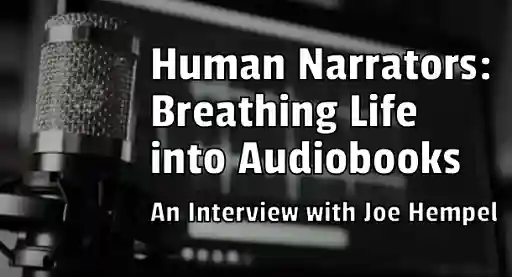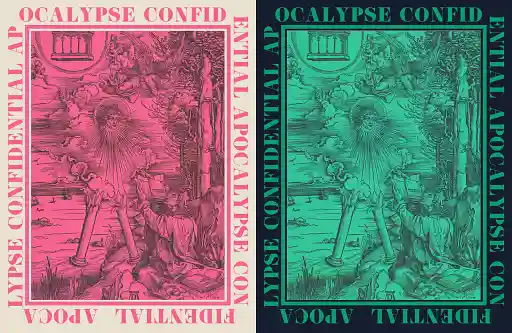Photo courtesy of the author
With 2021 comes a ton of great work to look forward to in the horror genre, but after reading Shane Hawk's debut anthology, Anoka, I am most excited to see his name in collaboration with publisher's like Death's Head Press and Howl Society. Anoka is a collection of shocking and disturbing short stories crafted with the perfect blend of folklore and supernatural horror. I'm going to be keeping my eye on Hawk as he delivers fresh literary frights to unsuspecting readers. His style is subtle and gripping with a pace that steeps suspense, like that of a seasoned horror veteran. There are many strong indigenous voices in the horror community and I am privileged to have the opportunity to talk with emerging author, Shane Hawk.
Can you tell us a bit about yourself and Black Hills Press?
My name is Shane Hawk, and I’m an emerging dark fiction writer. My Indigenous side largely influences my writing identity. I am half Cheyenne and Arapaho and enrolled in the tribe. My first release, ANOKA: A Collection of Indigenous Horror, published on October 26, 2020. It contains six stories and all of them revolve around the Minnesotan city, Anoka. People seem to enjoy my debut, which makes me overjoyed.
I created Black Hill Press about two weeks after I recovered from COVID-19. I was out for most of December 2020, but as soon as I got off my oxygen tanks, I tried my best to make up for lost time. As a debut writer at the end of October, I really only had about a month and a half of time to get my name out there before both my lungs got filled with pneumonia.
Black Hills Press was to be my Indigenous dark fiction self-publishing imprint. The world is changing, and one can simply release their fiction on their own time and not wait for a press. In the world of self-publishing, a sense of professionalism goes a long way. Establishing BHP offers my books an air of professionalism, as does my hawk-eyed editing for typos. Self-pubbers get a bad rap because so they churn many books out at an amazing rate. I wanted to offer something of quality, so I created an imprint.
With BHP, I also created author merch. Artists created designs for shirts foremost, but I placed those designs on whatever items were available via print-on-demand merchandise sites. Selling merch was a stopgap for lost wages between late November and early January after contracting COVID-19. An ancillary benefit was getting my name out there without having my name directly attached. One of the coolest things was seeing Wendy Wagner, editor of Nightmare Magazine, sporting my logo across her chest on Twitter. Same with Laurel Hightower and Cina Pelayo—having support like that is always amazing.
It feels like you found a lot of success in the horror genre really quickly. One day, your book Anoka is out in the wild. The next you announced you started an indie publishing company and had signed a contract with Death's Head Press to write a Splatter Western. Recently, I saw a literary agency also represented you. Congratulations on this accomplishment. What can readers expect to see from you and Black Hills Press next?
Thank you, and yes, it’s been a wild ride. As of right now, early May, my writing career is six months old. In order of publication, people can expect my short story, "She’s Taken Away", in Howls from Hell, publishing May 18, 2021; my 4-page werewolf comic book story in A Howl publishing late 2021; Untamable Creatures, my Indigenous splatterpunk western novella published by Death’s Head Press; and the Indigenous dark fiction anthology I am co-editing with Theodore Van Alst, which cannot be publicly named yet. As for what to expect next from Black Hills Press, my focus is definitely on a marketable novel. Self-publishing is taking a back seat for now since I signed with a literary agent. Rachel Letofsky of CookeMcDermid is amazing.
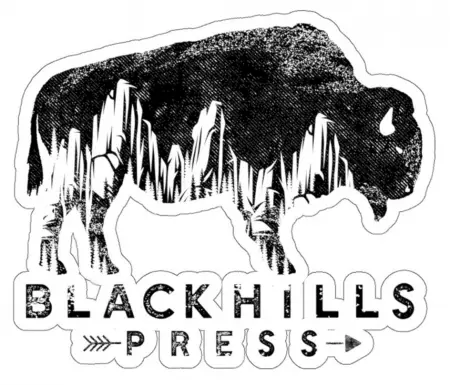
What qualities in your writing set you apart from other authors in the horror genre?
My writing career is rather nascent, and I think at this point I don’t have enough under my belt to establish myself apart from others per se. My writing is passionate, but that isn’t unique. I initially labeled Anoka as social horror, but isn’t all horror social? Doesn’t horror as a genre transgress boundaries and address sociopolitical issues? That’s not novel either. I’m half Cheyenne and Arapaho. The language, history, lore, etc. of my tribes and others inform much of my writing, so I suspect that is my work’s most distinct quality. Indigenous writers in the dark fiction world are sparse—and actually, Indigenous people make up less than 2% of the entire publishing industry. Hopefully, I can inspire others to write as those before me have pushed me to pick up this career.
As an Indigenous person and an advocate for fair representation, is there anything readers and influencers could do better in the horror community to help make change happen for underrepresented voices?
Hmm, things are already changing for the better. More Indigenous voices and stories are being heard and shared. All you can really do is give us a chance whenever you come across a work by an Indigenous writer, especially in horror/dark fiction. There are so many great Indigenous writers in literary fiction and SFF, but I’m on a mission to increase the number of Indigenous horror writers. Read us, share us, make posts and videos about us—this goes for all underrepresented voices in genre fiction, not just Indigenous storytellers. But like I said, things have already been vastly improving for BIPOC in this realm. We shouldn’t stop.
Who are some Indigenous authors that have influenced your writing?
Foremost, Stephen Graham Jones got me into writing. His novella, Mapping the Interior, showed me that someone like me can get published and get my voice heard, if I try hard enough and work at it. His writing is a real treat for me. Aside from him, there’s Rebecca Roanhorse, who writes somewhere in between fantasy and science fiction with dark elements sprinkled about. She writes beautifully. There’s Tommy Orange, whose novel, There There, was a finalist for the Pulitzer Prize in Fiction. I loved that damn book, and we are enrolled in the same tribe! I’m also honored that we have read each other’s work. Too cool. There are several other Indigenous writers, too. They’ve all influenced me.
I know you probably can't reveal too much, but is there a project you are particularly excited about?
Definitely. I can’t reveal the name of it yet, or rather, I want to keep it a secret until I sign a nice contract. I’m co-editing an all-Indigenous dark fiction anthology with Theodore Van Alst. He’s known for his collection, Sacred Smokes, with the sequel, Sacred City, on its way soon. He also edited a cool collection of Stephen Graham Jones’ work titled, The Faster Redder Road.
This project came to fruition at the tail end of December 2020. I could concentrate on Twitter and emails despite the oxygen tanks. I contacted a few people, and I had the idea to gather up a ton of Indigenous writing talent to write dark stories while also having a select number of spots ready for lesser-known Indigenous writers through open-call submissions.
The initial plan was to either self-publish through a Kickstarter campaign or sign with an indie press. Gabino Iglesias was helping Theodore (Ted) and I behind the scenes. Gabino was helping us land an agent, and the idea of the anthology elevated to some level I never thought possible. An agent? One who works with the HWA and big anthologies? How’d I get here? Turned out the agent was rather busy and didn’t seem extremely interested. That was okay, and I love Gabino for trying to help us out in that regard. But from there, I felt compelled to take the reins and find an agent myself.
One of the last people I asked to be a part of this anthology was Cherie Dimaline (The Marrow Thieves, Empire of Wild) and all communication was through her agent who now represents me. It was wild back then, and it still shocks me. Rachel offered a chat over the phone to talk about this project and representation. Toward the end of that phone call, the chat resulted in the possibility of her representing ME, not just the one-book deal. The rest is history.
So, from about December 29th to May 10th, this anthology went from a popular tweet to an eight-page proposal being shopped to traditional publishing houses. Yep, traditional, BIG FIVE. How the… Ted, Rachel, and I are on the precipice of a major publishing deal. This isn’t just a big deal for Indigenous creatives, but for horror as a whole. Can you name a horror anthology that was published by a “Big 5” publisher in the last couple decades? The only one that comes to mind is Flight or Fright edited by Stephen King and Bev Vincent. Heck, at this point, talking to Stephen King and getting a blurb from him isn’t an insane idea. It’s all very wild.
We are very excited about this project. It is going to be HUGE.
I remember reading your short story collection, Anoka, and thinking that this small town in Minnesota, which also happens to be the “Halloween Capital of the World,” would be a spectacular universe to base your writing in. Can readers expect to find themselves haunted by the supernatural forces that plague the people of Anoka again?
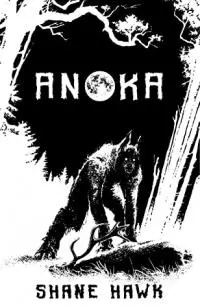 Everything has been happening at breakneck speed. I created Black Hills Press to self-publish my dark fiction, but not long after, they chose my pitch for Death’s Head Press’ Splatter Western series, and I signed with an agent less than a month after that.
Everything has been happening at breakneck speed. I created Black Hills Press to self-publish my dark fiction, but not long after, they chose my pitch for Death’s Head Press’ Splatter Western series, and I signed with an agent less than a month after that.
In between there, I was planning on writing a sequel story to "Transfigured". I purposely left the ending rather vague, so I could revisit the small city of Anoka at some point. The sequel story, "Transfixion", had about 1,000 words written at the time of my early talks with Rachel Letofsky. And I signed with her fairly soon after that. Alongside "Transfixion", I was planning on somewhat of a sequel collection.
During the writing process of Anoka, I actually lost five fully fleshed stories, all around the 5,000-word mark. I was devastated, but so it goes… My initial plan was to return to those ideas for the sequel collection—sort of like Matthew M. Bartlett’s Creeping Waves as the sequel collection to his Gateways to Abomination collection. But anything Anoka-related will have to be placed on the back burner. I’ve got novels to write! But… my agent may have something cooking regarding Anoka. We will have to wait and see.
A Howl is a werewolf comic book on Kickstarter with over thirty-five thousand dollars backing it already, with which you potentially have a story in. Can you tell us some more about that project?
What an ambitious project. It’s an anthology exclusive to Indigenous writers and artists. Beth LaPensée is the editor with Lee Francis as the publisher of Native Realities Press. If this volume gets absolutely funded (the “Full Moon Book” stretch goal of $80k) it will contain over 200 full-color pages of Indigenous stories revolving around wolves, werewolves, and Rougarou. They will include my story when we hit the $60k stretch goal, and it will feature art by Barbara Kenmille (Deer Woman). I’m optimistic, but if it doesn’t happen, Beth assured those of us in the higher tiers we would be in a second volume.
Every story varies in length, but most are Indigenous writers paired with an Indigenous artist, and all the art obviously varies as the artists have different styles. Although, some Indigenous folks are super talented and will both illustrate and write their own story. I can’t wait for its release, and I am honored Beth included me.
Since self-publishing your book, what is one thing you wished you would have done differently with the release?
I didn’t know what I was doing. With that in mind, I regret not writing the thing before setting a publication date. It could have helped push me toward seeing a project all the way through, but I can’t know for certain. There was some pressure and depression. After I lost those five stories, I almost shelved it and moved onto something else. I also wish I knew what beta readers were and ARCs. Like a crazy person, I set up a preorder on Amazon, THEN wrote it. I published the collection, THEN asked people to read and review. Anoka had no buffer zone of decent reviews before its release.
Despite my mistakes, people seem to like my work, and I am grateful for that. Last I checked on Goodreads, Anoka had like 250 ratings in 6 months. That’s pretty good for a relative nobody.
What has the self-publishing process taught you, specifically in the horror genre?
Self-publishing taught me that one can have full creative control and release control. If one signs a contract with an indie press or trad house, they can expect to wait on their project’s publication for months, maybe up to a year. Horror is a relatively small genre. On most big publisher sites or bookstores, they still file horror as a subgenre of SFF or mystery or thriller. With that in mind, self-published horror should be pushed out there and quick. It doesn’t need to get filed away under a rock or go through the slow burning process of other genres.
But be careful. Don’t just rush your manuscript and throw it out there half-baked. Typos will almost always be present in finished products. Self-published authors have to try extra hard to be free of typos and formatting errors. Respect yourself, respect the genre, and respect the exceptional capability of self-publishing. You know, only monks in the olden days could read, or the very wealthy. After that, only those who approached publishing houses with pristine manuscripts got their work out there. We are at an age where you can cut the middleman and push your books. It comes with a price, though. As a self-published author, you will be your own salesperson, your own ad creator, your own proofreader, etc. You’re responsible for every aspect, save for maybe the cover art (unless you’re more talented than me and make your own) and printing (Amazon, IngramSpark, Lulu Press, etc.).
What is one piece of advice you have for other Indigenous authors struggling to have their work seen?
The main suggestion I have is to reach out to fellow Indigenous creatives; don’t be afraid. Consider networking with many folks; they don’t all have to be exclusive to publishing or fiction. I’ve befriended actresses, artists, and gamers with many more to come. I’m still new and trying to figure it all out; we all are. Don’t be afraid to reach out to anyone, no matter how famous or cool they are. Learn email etiquette. Make friends. Everyone has limited time, so when you reach out, make sure you let them know you respect their time, and then follow through with professionalism and a succinct message.
If you get your name out there, it will leave more and more people’s lips. People pay attention. And word-of-mouth is the most powerful marketing out there.
Get Anoka at Amazon
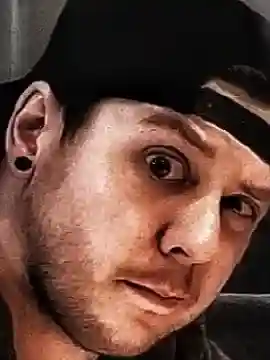
About the author
Andrew Robert, "The Book Dad", is a voracious reader and reviewer of horror fiction. He is the curator of a promotional platform called Horror Oasis and the owner of DarkLit Press.
